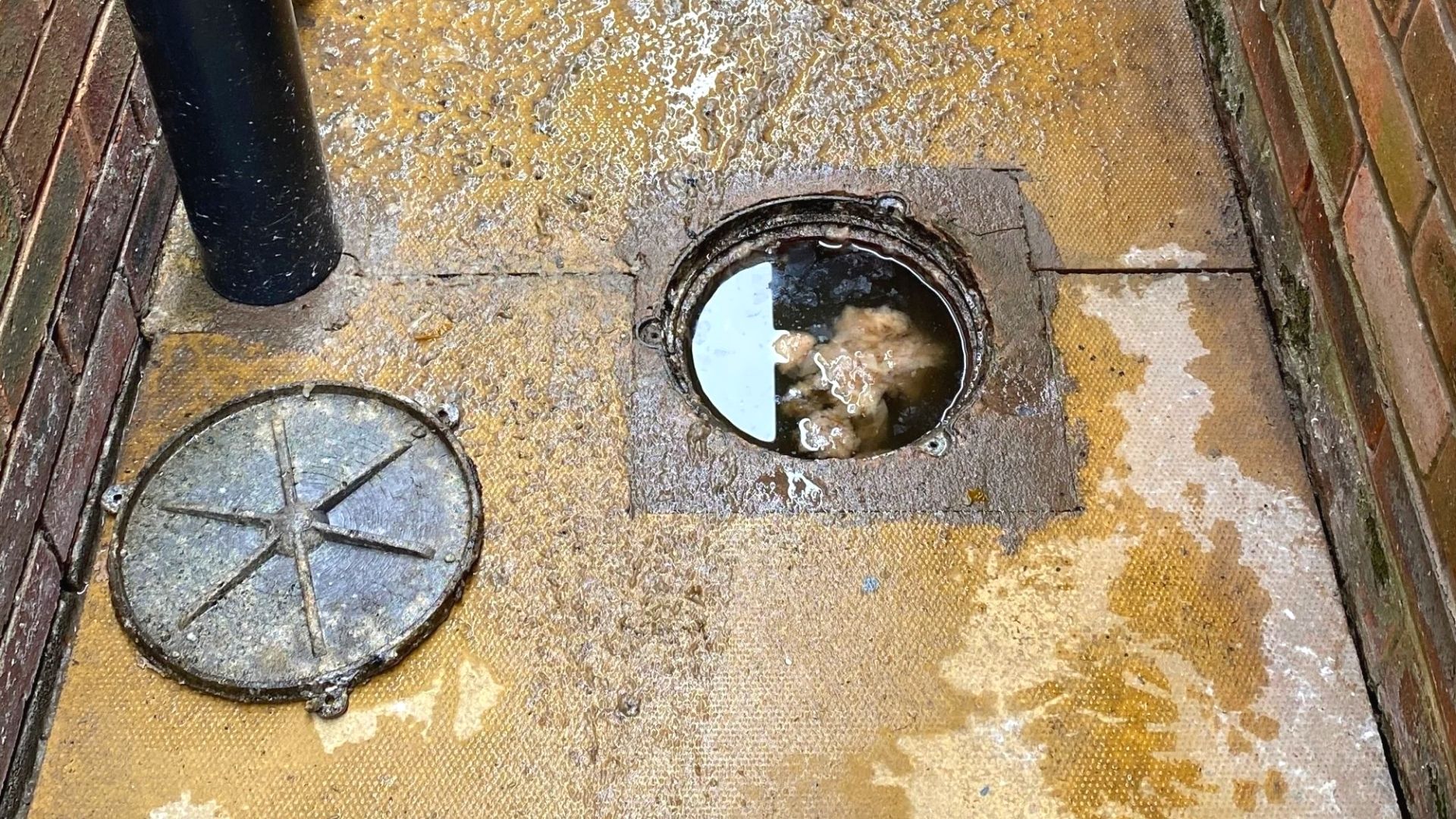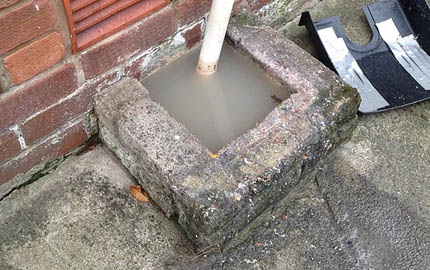What to Handle a Blocked Drain Prior to Seeking Expert Help
What to Handle a Blocked Drain Prior to Seeking Expert Help
Blog Article
We've encountered this article relating to How to handle a clogged drain in your home down the page on the internet and figured it made sense to quickly share it with you on this site.

Intro
Handling an obstructed drainpipe can be a frustrating experience, interrupting everyday activities and possibly triggering damages to your home. However, before connecting to pipes specialists, there are actions you can require to address the issue on your own. In this overview, we'll explore do it yourself services and safety nets to deal with a blocked drainpipe successfully.
Recognizing the Issue
The primary step in addressing an obstructed drain is acknowledging the indications. Slow-moving water drainage, gurgling audios, foul odors rising from drains pipes, or water support up are common indicators of an obstructed drainpipe. Identifying these indications early can aid prevent additionally issues.
Picking the Right Pipes Service
When choosing a plumbing solution, think about factors such as experience, licensing, and client reviews. Pick a trustworthy plumber with a performance history of top quality workmanship and transparent rates practices.
Price Considerations
The price of expert drainpipe cleaning company can differ relying on the severity of the blockage and the plumbing professional's prices. Request quotes from several companies and inquire about any kind of additional charges to ensure transparency and avoid shocks.
Safety Measures
When trying do it yourself drain cleaning, prioritize safety. Use protective handwear covers and eyewear to avoid contact with harmful chemicals or microorganisms. Never ever mix various drain cleaning items, as this can create unsafe fumes.
Situation Studies
Real-life examples show the efficiency of DIY remedies and the relevance of timely professional treatment in resolving drainpipe clogs.
Common Sources Of Blocked Drainpipes
Recognizing the aspects that add to drain pipes obstructions is vital for effective resolution. Common offenders consist of hair, soap residue, grease, food particles, and international things like sanitary products or paper towels. Tree roots attacking below ground pipes can also trigger considerable blockages.
Do it yourself Solutions
For minor clogs, several DIY options can be reliable. Putting boiling thin down the drain can assist dissolve oil and particles. Baking soda and vinegar or a combination of salt and baking soda can serve as all-natural cleaners. Utilizing a plunger or pipes snake to displace blockages is an additional alternative.
Tools and Equipment
Having the right tools available can make DIY drainpipe cleansing more efficient. A plunger is a versatile tool for removing clogs in sinks, bathrooms, and showers. A plumbing snake or auger can reach much deeper blockages, while drain cleansing chemicals can be made use of meticulously for persistent obstructions.
Safety nets
To prevent future obstructions, taking on safety nets is crucial. Set up drainpipe guards or strainers to capture hair and debris prior to they enter the pipes. Consistently flush drains with warm water to dissolve oil build-up, and prevent throwing away oil or solid waste away.
When to Call a Specialist
While do it yourself options can deal with minor obstructions, certain indications suggest the need for expert aid. Persistent clogs, foul odors in spite of cleansing initiatives, or numerous drains supporting simultaneously are warnings that necessitate experienced treatment.
Conclusion
By following the suggestions detailed in this overview, you can effectively take on blocked drains and protect against future pipes concerns. Whether choosing DIY remedies or seeking professional aid, prompt action is key to keeping a healthy and balanced pipes system and maintaining the integrity of your home.
How to Clear a Clogged Drain Yourself (And When to Call In the Professionals)
What Can Clog a Drain
Dirt Skin flakes Hair Grease Soap scum Food Offset pipes Tree roots Small objects Mineral buildup DIY Tricks to Unclog a Drain
You can fix this! Once you have identified the source of the clog (or have a vague idea), you can try one or a combination of these fixes in order to clear your plumbing.
Wire Hanger or Snake
Untangle and clear out hair from a drainpipe with a homemade snake. Use a straightened-out wire hanger with a 90-degree angle hook to locate the clog and drag out any unwanted material.
Remember not to push the clog further down to where the wire hanger cannot reach! If you need to follow up with a plunger, give it a try. Your efforts might be more successful after it’s been wire-snaked.
If you want to get fancy and don’t have a wire hanger to spare, head to the store and pick up a hand-operated drain snake. You can get one for $10-$30. It may save you the hassle, and provide additional length to reach deep into the clogged pipe.
Plunger
A cup plunger has a suction cup attached to a wooden handle. The rubber creates a seal around the drain, and increases the pressure force of the plunger.
Plunge for 30-second increments to loosen the clog. This may need to be repeated over the course of 15-20 minutes. Once plunged, run the water to flush the remaining material out of the drain.
Remember– never use a plunger if you have used a chemical drain cleaner. These chemicals can splash up from the force of the plunger and cause serious injury or burns.
Boiling Water
Hot water can sometimes break up materials into a flushable amount. Dirt, grease, and soap buildup requires heat in order to unstick from surfaces.
Take your kitchen kettle and heat your water to a boil. Once it reaches a rolling boil, pour it directly down the drain into the blockage. Carefully follow with plunging, if necessary.
Don’t worry if this takes more than one try! It can often take multiple kettles and repeated plunging in order to clear a particularly stubborn clog.
Chemical Drain Cleaner
As a last resort, pick up a bottle of chemical drain cleaner. Drain-cleaning chemicals are potent, and not very good for the environment.
You may need to wear protective eyewear in gloves before handling your bottle of chemical drain cleaner. Follow the instructions printed on the bottle, and flush with water as soon as the instructions allow. Do not follow with plunging.
Baking Soda and Vinegar
As a safer alternative to chemical drain cleaner, baking soda and vinegar can create a chemical reaction that clears tough clogs.
Combine one cup of cleaning vinegar with one cup of boiling water, and set aside. Once you have done this, pour half a cup of baking soda down the drain. Give the baking thirty seconds to settle and cover a large portion of the problem drain.
Following the baking soda, pour down your vinegar and hot water solution. Once the vinegar and baking soda combine, the mixture will bubble and fix. Let this reaction fizzle in the drain for about an hour.
After an hour, follow with a kettle’s worth of hot water. The heat and liquid should flush out any remaining material.
When to Call a Plumber
If your DIY attempts haven’t cleared your clog drain, it’s time to call in a professional. It’s not worth losing access to your kitchen sink or high-traffic bathroom. A clog in a vital area can keep you from the things you’d rather be doing, and derail your routine.
Anytime a clog is causing water to spread is a time to call in a plumbing service. What starts out as a little bit of water can quickly grow into serious, expensive water damage.
Additionally, a serious clog can result in burst pipes or serious leaks. Make sure you know when to take it seriously!
https://myguysnow.com/how-to-clear-a-clogged-drain-yourself-and-when-to-call-in-the-professionals/

I was introduced to that report on Tips for Dealing with Clogged Drains and Sewer Lines from a good friend on our other site. Sharing is nice. You won't know, you may very well be helping someone out. Thanks for your time. Don't forget to come by our website back soon.
Get Your Estimate Now Report this page